Exporting custom microphones requires FCC, CE, and OEM certifications plus wireless audio compliance. This guide...
The Role of Echo & Reverb in Karaoke Mics
When it comes to karaoke, sound effects play a huge role in enhancing vocal performance. Whether you’re using a singing microphone wireless, pairing it with Bluetooth headphones and microphone, or looking for the perfect microphone for singing wireless, adjusting echo and reverb can significantly improve your sound. These two effects help create depth, warmth, and richness in vocals, making singers sound more professional—even if they’re just having fun at home.
But what exactly do echo and reverb do? How do they affect your singing? And what’s the best way to adjust these effects on your karaoke microphone? In this guide, we’ll break down the role of echo and reverb, how they impact your voice, and how to use them effectively in your karaoke setup.
Understanding Echo & Reverb in Karaoke
What is Echo?
Echo occurs when sound waves reflect off surfaces and return to your ears after a delay. In karaoke, an echo effect adds repetition to your voice, making it sound like you're singing in a large space.
Example: If you say "Hello!" into a microphone with echo turned on, you’ll hear "Hello…hello…hello" fading out over time.
Many singing microphone wireless models include built-in echo settings that allow you to adjust the intensity of the effect. Too much echo can make your voice sound artificial, but a moderate amount adds a unique texture to your singing.
What is Reverb?
Reverb (short for reverberation) is the natural reflection of sound waves in a space. Unlike echo, reverb doesn’t create distinct repetitions; instead, it produces a smooth, lingering effect that gives your voice a sense of space and depth.
Example: When you sing in a bathroom, the tiled walls cause sound waves to bounce multiple times, creating a reverb effect.
Professional singers use reverb to make their vocals sound fuller, and most microphone for singing wireless options include built-in reverb controls. This effect can make your voice sound like it’s coming from a concert hall, church, or studio.
How Echo & Reverb Affect Karaoke Performance
Echo and reverb aren’t just for fun—they can completely change the way your voice sounds. Here’s how they enhance karaoke performances:
1. Makes Vocals Sound Richer
Adding reverb to a singing microphone wireless setup makes vocals sound fuller and more dynamic. It helps smooth out imperfections and prevents vocals from sounding dry or flat.
2. Improves Pitch & Confidence
Reverb can give the illusion of a stronger, more controlled voice. Many singers find that a slight reverb boost makes it easier to stay on pitch and project their vocals confidently.
3. Adds a Professional Touch
A completely dry microphone (without echo or reverb) can sound raw and unpolished. By adjusting these effects, your microphone for singing wireless setup can mimic the sound quality of professional recordings.
4. Enhances Sing-Along Experience
When using Bluetooth headphones and microphone, reverb and echo create a surround-sound effect, making it feel like you’re performing in a live setting rather than just singing into a mic at home.
How to Adjust Echo & Reverb on Your Karaoke Mic
Most singing microphone wireless systems come with built-in settings to adjust echo and reverb. Here’s how to get the best sound:
1. Find the Right Balance
Too much reverb or echo can make vocals sound unnatural. Start with a small amount and gradually increase it until you find the right mix.
• Minimal reverb – Best for pop and rock songs, where vocals need to sound crisp.
• Medium reverb – Works well for ballads and slow songs, adding warmth.
• High reverb – Suitable for dramatic performances, creating a deep, concert-like sound.
2. Adjust for Your Environment
If you’re in a small room, you may not need as much reverb because natural reflections will already be present. However, if you’re singing outdoors or in a large open space, adding more reverb can help fill out the sound.
3. Use Echo for Fun Effects
Echo isn’t always necessary, but it can add a unique effect for certain songs. Try using a small amount of echo when performing old-school rock or country songs for a vintage effect.
4. Pair with Bluetooth Headphones for Monitoring
Using Bluetooth headphones and microphone together allows you to hear your voice in real-time and adjust effects accordingly. Many Bluetooth-enabled karaoke mics allow for wireless monitoring, so you can experiment with reverb and echo levels without feedback issues.
Best Karaoke Microphones with Echo & Reverb Features
If you’re looking for a microphone for singing wireless that offers excellent echo and reverb control, here are some top options:
1. BONAOK Wireless Karaoke Microphone
• Built-in reverb and echo effects
• Bluetooth connectivity for wireless use
• Compatible with karaoke apps and Bluetooth headphones and microphone setups
2. Shure SM58 Wireless System
• Industry-standard sound quality
• Adjustable reverb effects
• Great for live performances and home karaoke
3. TONOR Wireless Karaoke Mic
• High-quality sound with noise reduction
• Multiple reverb settings for vocal customization
• Pairs easily with a singing microphone wireless system
4. KaraoKing Bluetooth Karaoke Microphone
• Adjustable echo and reverb effects
• Built-in cordless microphone and speaker combo
• Works well with smartphone karaoke apps
Common Mistakes When Using Echo & Reverb
Even with the right microphone, improper use of reverb and echo can ruin your karaoke performance. Avoid these common mistakes:
1. Overusing Echo
A little echo goes a long way. Using too much can make your voice sound robotic and unclear. Stick to small adjustments for the best results.
2. Ignoring Room Acoustics
If you’re in a naturally echoey space (like a tiled room), adding too much reverb can make vocals sound muddy. Adjust accordingly based onyour environment.
3. Not Testing Before Performing
Always test your microphone settings before starting a performance. Using Bluetooth headphones and microphone together can help you hear how your voice sounds with different effect levels.
4. Using Reverb on Fast-Paced Songs
Fast songs with heavy reverb can make lyrics sound jumbled. Keep the effect light for upbeat, rhythmic tracks.
Conclusion
Echo and reverb are essential tools for creating a polished and immersive karaoke experience. Whether you're using a singing microphone wireless, a microphone for singing wireless, or pairing your setup with Bluetooth headphones and microphone, these effects can make your vocals sound richer, fuller, and more professional.
By learning how to adjust echo and reverb properly, you can enhance your singing, boost your confidence, and enjoy a more engaging karaoke session. So next time you pick up the mic, experiment with these effects and see how they transform your performance!

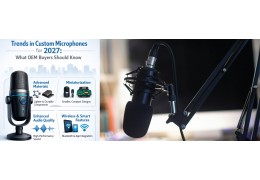


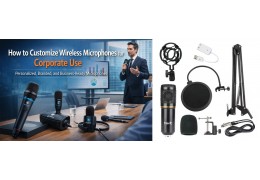
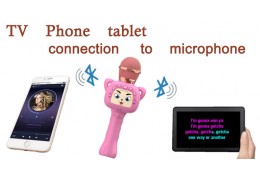
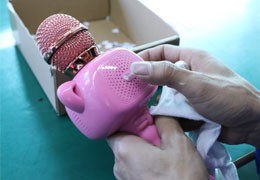
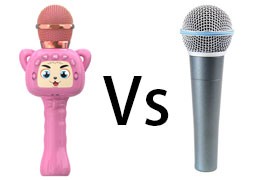


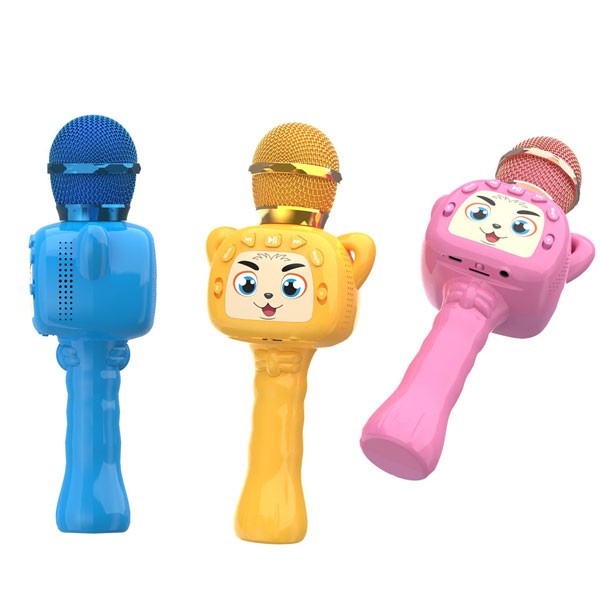
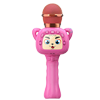

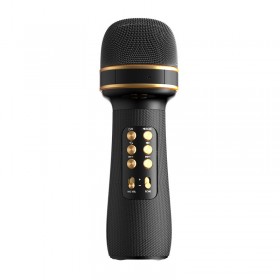
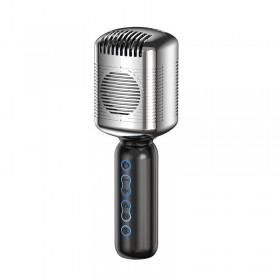

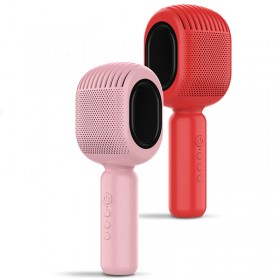
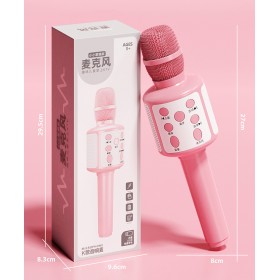
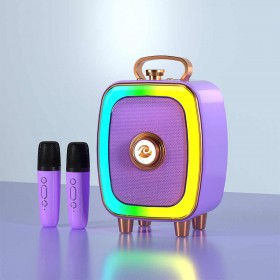
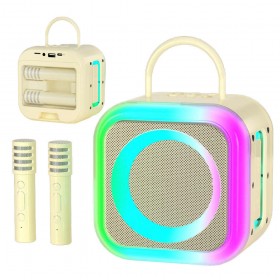
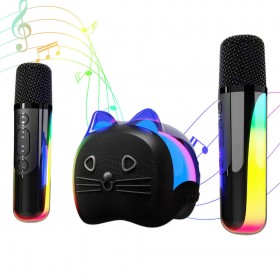
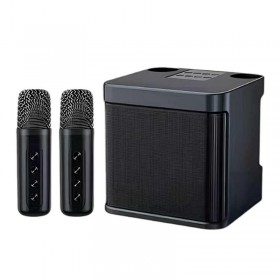
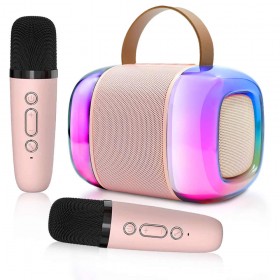
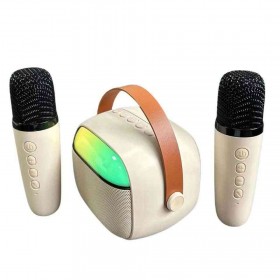
Latest comments